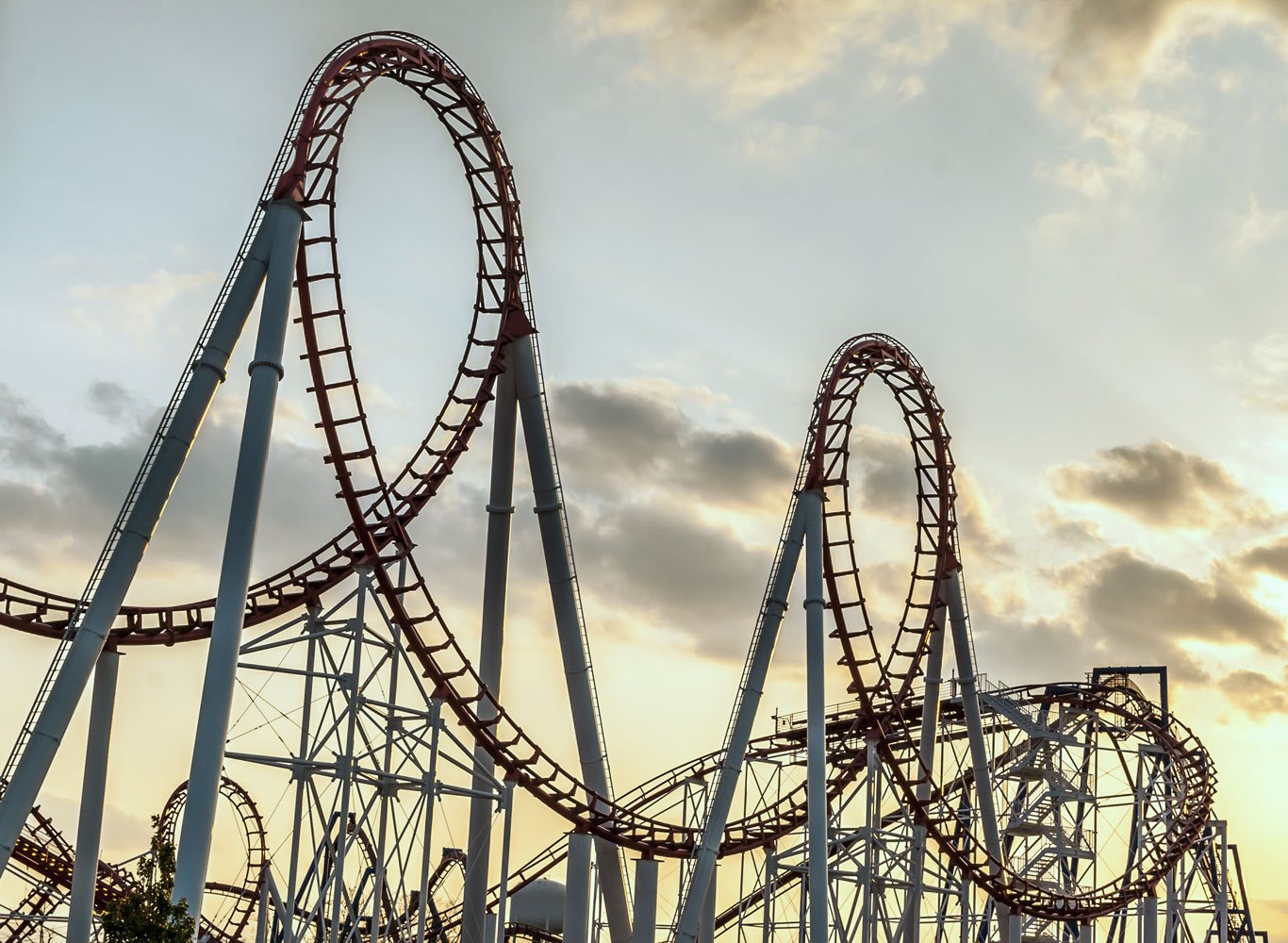Updated 6/18/24
Imagine being on a roller coaster. You’re heading up the first big hill, and all of a sudden, the car tips over the top and plunges down the loop. You can feel yourself rising from the seat, and it’s as though your insides are floating. The weightless feeling you experience in this situation isn’t an illusion. If you had a scale, you would find that you actually weigh less in that moment.
This feeling can happen when riding a roller coaster but also when you go over a big dip in the road or even while riding an elevator that suddenly starts descending. But what’s the cause?

“The honest answer is that no one knows with absolute certainty,” said Dr. Brad Sagura, a surgeon at University of Minnesota’s Amplatz Children’s Hospital. “While your body is secured by your seat belt, the organs are free to move about by some extent. That contributes to the free-fall floating sensation that either calls us back for more or has us running to get sick from nausea.” In addition, “there is no long-term danger from your organs slightly shifting around. They go back to where they started. But the movement is enough for your nerves to notice that something is happening,” he said.
In short, normally, because of the constant force of gravity, the parts of your body are pushing on each other. But in the state of free-fall while plunging down a hill or a roller coaster’s curve, there isn’t net force to act upon. Various organs are essentially falling at the same time, but individually inside of your body, they’re weightless. Your stomach is suddenly very light because there is less force pushing against it.
The Physics of Gravity and Relativity
So let’s dig into the physics of this a bit. Imagine you’re on an elevator being pulled upward instead of dropping down. As the elevator starts to move, the floor moves faster and faster in your direction. It pushes up on the bottom of your feet with more force than it would if you were standing still. If you had a scale in that moment, you would appear to weigh more. The same can be said for this phenomenon on roller coasters. You feel very light at the top of loops, but heavier than usual at the bottom.
This explanation holds true because Albert Einstein tells us so. He completed a thought experiment with an imaginary elevator through which he discovered there is no way to tell the difference between weight caused by gravity and weight caused by movement of a floor speeding up under you. From this one thought, Einstein developed the idea of general relativity. General relativity explains that what we perceive as the force of gravity actually comes from the deflection of space and time. This is still the theory of gravity we use today. It’s one of the great feats of modern physics, and it all came from his envisioning an elevator.
Can you imagine what Einstein would think up with a roller coaster?
Be Like Einstein
While even the experts say there’s not complete certainty about why you get that that ubiquitous feeling in your stomach after the drop of a roller coaster, we now know more. There’s plenty more physics of roller coasters to take in; and what an engaging learning experience for students! Give students the opportunity to contemplate like Einstein would using our Roller Coaster Kit, and get inspired by our Roller Coaster info and sample activity for Grades 6+.
Comment with your roller coaster adventures in our out of the classroom!
MORE RESOURCES:


